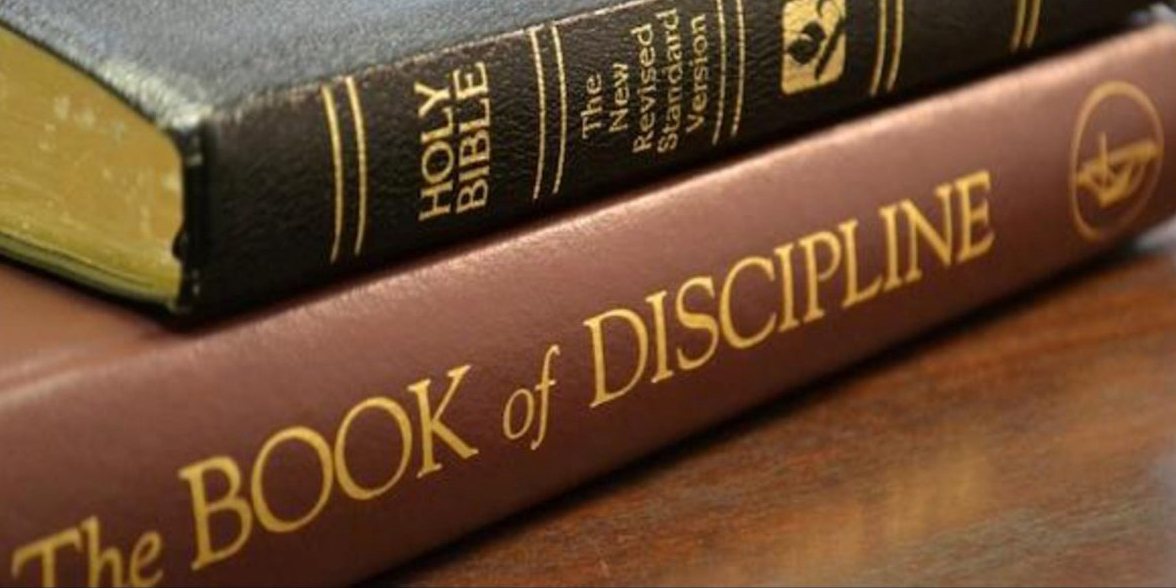
By John W. Coleman
Bishop Peggy Johnson used the 30th anniversary of the fall of the Berlin Wall in Germany to lament the walls she sees dividing United Methodists over the perceived rights and wrongs of marriage and ordained ministry for lesbian and gay members. She also announced that she would not refer any complaints for trials against clergy related to homosexuality.
“Humanity is well-acquainted with walls, not only physical walls but the walls of difference that are found in hearts and minds,” the bishop writes in a pastoral letter to clergy and churches of the Philadelphia Episcopal Area. “We are quick to erect attitudinal walls around our differences and our beliefs.”
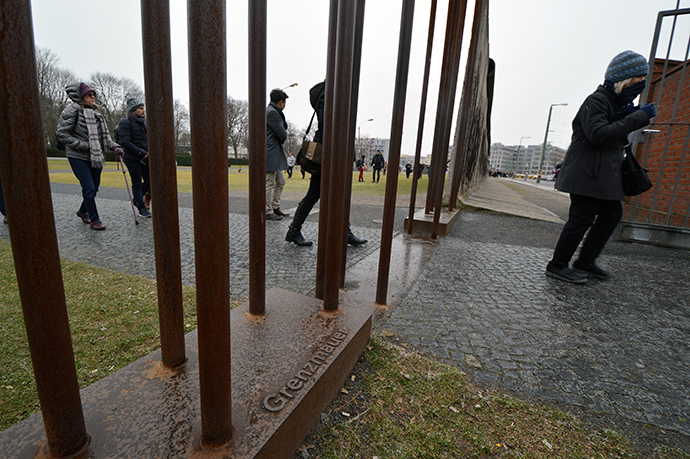
In the letter, sent November 9 to members of the Eastern PA and Peninsula-Delaware conferences, she cites “alienation, separation, fear, distrust and violence” as the consequences of such division. She titled the letter “Tear Down this Wall,” quoting the appeal made by U.S. President Ronald Reagan in a 1987 speech calling for the dismantling of the infamous Berlin Wall that separated the people of East and West Germany for political reasons.
The bishop reviewed church laws that forbid the marriage and ordination of members of the “LGBTQIA+ community” and that contend “the practice of homosexuality is incompatible with Christian teaching.” Those laws were upheld and enforcement of them was strengthened in the Traditional Plan that was narrowly passed by the 2019 Special General Conference in February.
Protection of LGBT clergy against complaints
Tougher sanctions—including mandatory punishments of suspension and loss of ministry credentials for violators—are due to take effect January 1, 2020. Growing anxiety, as that date nears, has prompted a number of bishops to write letters and issue episcopal statements to their respective conferences.
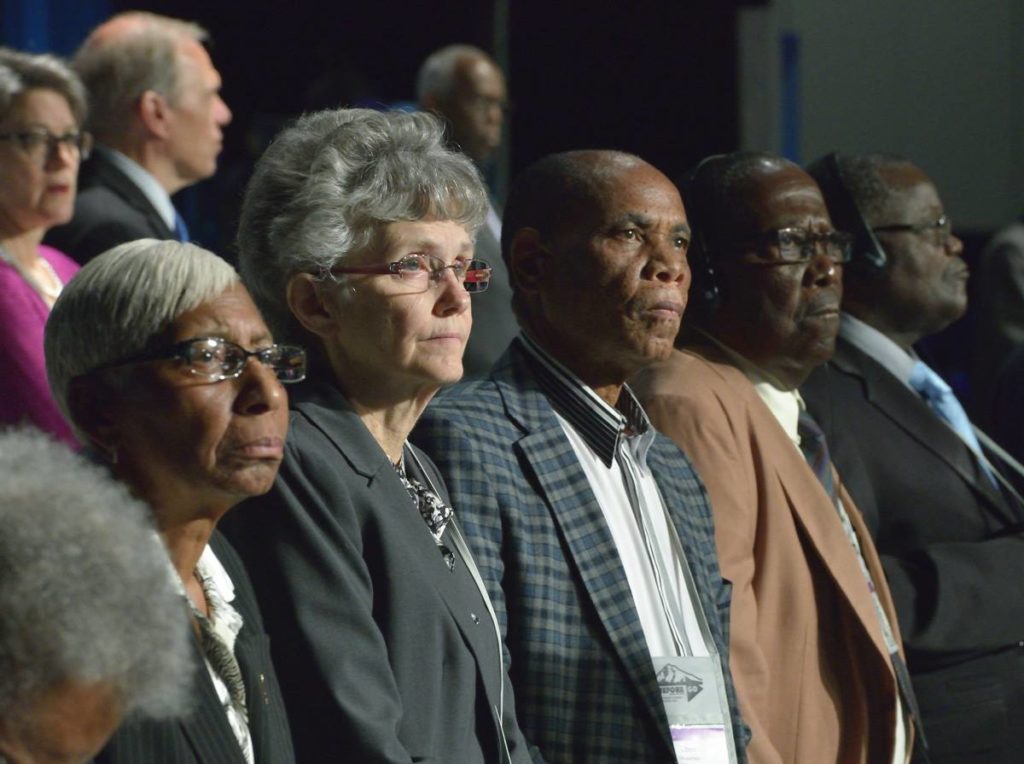
“Many have been asking me for protection and wanting my thoughts about how I would proceed if we have more complaints,” said Bishop Johnson, “especially complaints regarding people who are self-avowed, practicing gay folk in ministry. Doing a wedding is one thing but being brought up on charges for just being who a person believes God has created them to be is such a deeply personal and painful thing.”
While admitting that she is obligated to process any complaints she receives, she says church trials are not helpful. “So, I will not refer any such complaints for a church trial. I say this not out of a sense of rebellion against the rules in our Book of Discipline but out of my pastor’s heart that wishes to defend the people of our conferences against this destructive, divisive and expensive process.”
The bishop cites the Discipline’s preference for achieving “a resolution that focuses on repairing any harm to people and communities and that can bring healing to all parties.” Thus, she suggests that anyone who feels harmed should begin with a conversation rather than a complaint.
Bishop Johnson read other bishops’ writings, including broad statements like the “Deeper Conversations UMC” statement that people can endorse and the Western Jurisdiction bishops’ Safe Harbor Declaration. That declaration promises to provide “safe harbor” for LGBTQ clergy “who may be at risk under the new provisions, prohibitions and punishments.”
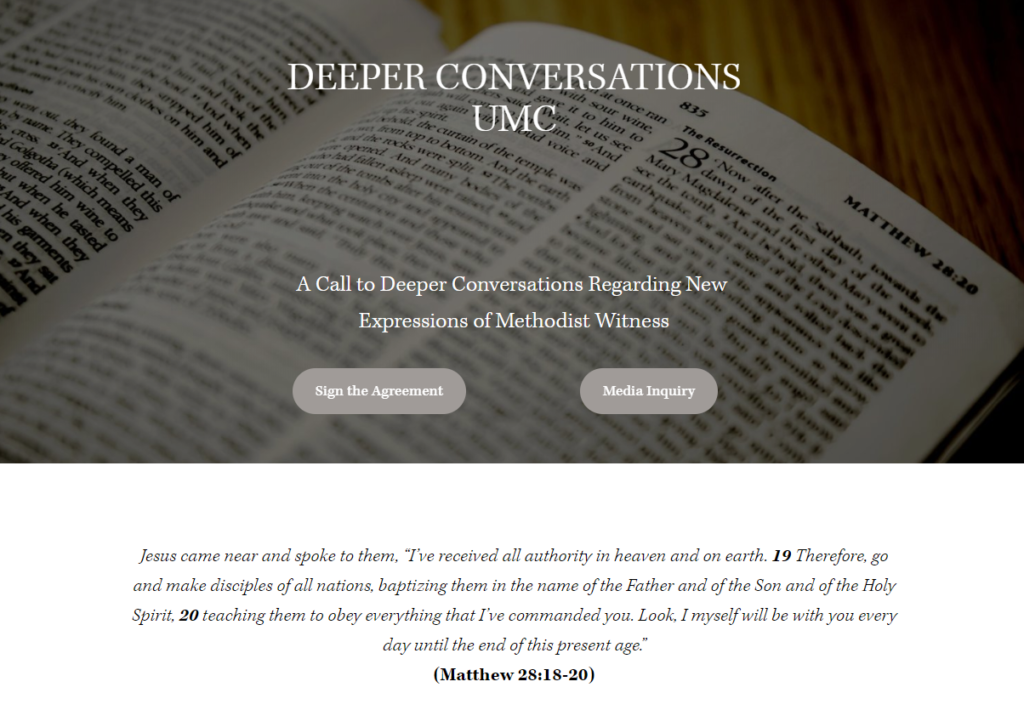
“I appreciate the wisdom of my colleagues. but I like to craft my own messages, and that is what I did,” she said. “I have gotten quite a few comments about it and have engaged in email conversations with many people.”
In some of those conversations she recalls challenges she faced in seminary pursuing ordination as a woman. “Some at the seminary believed, based on their interpretation of Scripture, that I was unworthy to be a pastor just because of my gender.”
Complaints and trials do enormous harm
In her letter the bishop offers her constituents “a passionate plea that you do not engage in filing complaints around the issue of homosexuality. Complaints and trials do an enormous amount of harm to everyone.
“My goal is always to keep people talking and praying during these unique times and not filing complaints and engaging in judicial processes,” she explained. “Eastern PA had had two extremely destructive church trials in recent years over sexual orientation and a gay wedding. These did nothing but hurt and divide people. We simply can’t endure another one. We’ve got better things to do with the $300,000 and about a million hours of personnel time this takes from us.”
In her letter she invites members to engage others in conversation even in disagreement. “Hear their hearts and engage in humble inquiry about a person’s life story and perspective,” she writes. “Explain where the harm is, and then craft a peace plan. And most importantly, pray with each other!”
The episcopal leader, who in 2020 will complete 12 years—three terms—of leading the Philadelphia Area, calls this a time of transition, as the UMC prepares for its next General Conference, May 5-15, 2020. Indeed, many fear or fully expect a schism among members with traditional, centrist and progressive theological views and thus, either a division or dissolution of the denomination.
Take down the walls in our hearts
But Bishop Johnson is still hopeful that will not happen. She ends her letter with translated lyrics of a popular German hymn, sung as the Berlin Wall was coming down—an historic end to decades of division and the dawn of unity for German people.
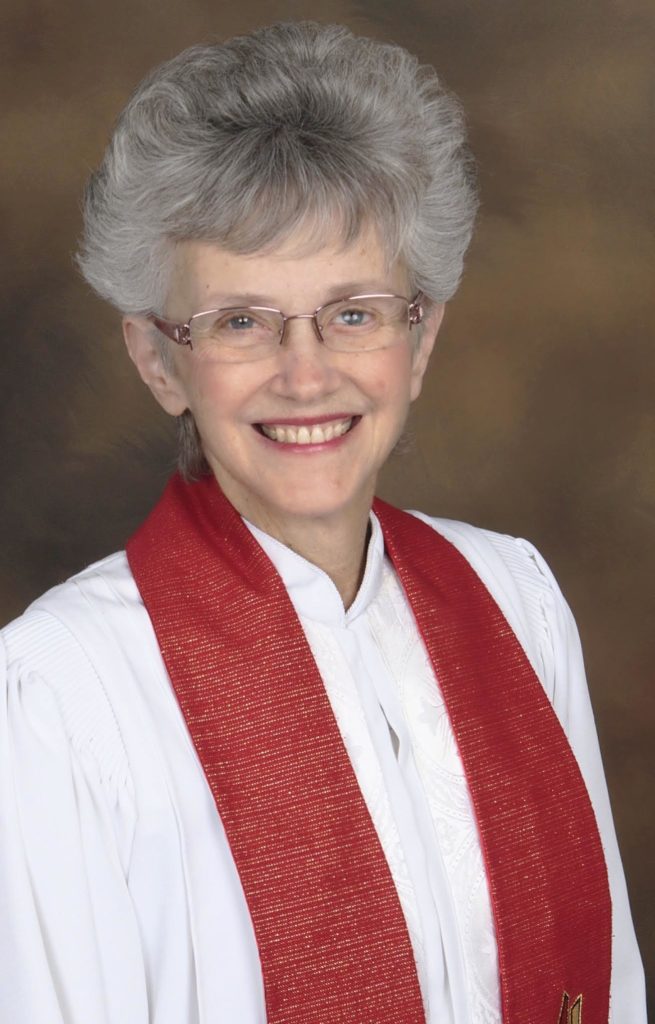
“Delegates will consider how we as a denomination can maximize our witness and craft a form of unity that brings a new wind of hope for all people,” she writes. She urges members to “employ with grace all of the giftedness of the Body of Christ, not just one ‘side’ or the other.
“We can only accomplish this vibrant ministry as we take down the walls in our hearts and “do justice, love mercy and walk humbly with our God.” (Micah 6:8)
